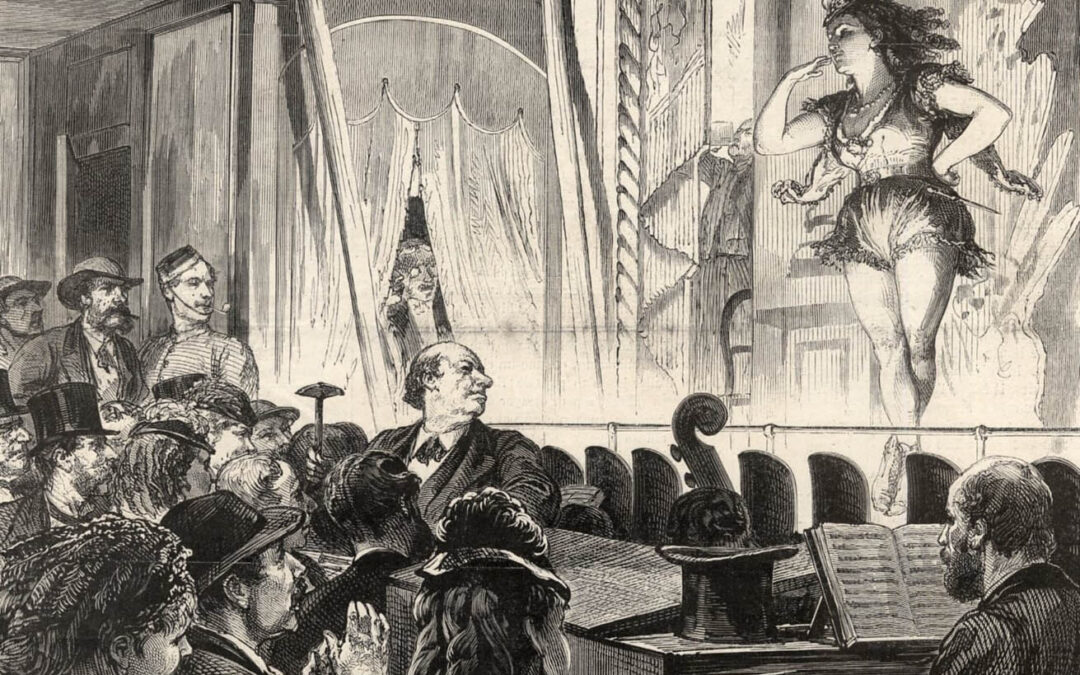The protagonist of my debut novel The Tumbling Girl is Minnie Ward, an intrepid and outspoken writer for a music hall in Victorian London. She has a slightly complicated backstory about her name, but the truth is she was named after my Aunty Minnie. Sadly no longer with us, she’s the best advertisement I ever knew for not marrying and not having children. Right up into her eighties she remained playful, enthusiastic and fiercely independent. Part of the huge influx of Irish people forced to travel overseas in the first half of the twentieth century she came to England to find work, leaving behind the home she loved, just like my parents did. I still have the suitcase my dad travelled to England with. It’s tiny, barely enough for an overnight stay, and yet he had to put into it everything he needed to start a new life not of his own choosing. My mum wanted to be a teacher but her parents simply couldn’t afford for her to stay on at school. She came to England to train as a nurse and spent the first year crying herself to sleep every night. Ironic, considering she ended up loving the profession and worked until the age of 71.
Years ago, there was a trend when you finished primary school at age 11 to get your friends, teachers, family to sign an autograph book and add a little rhyme or saying. I found mine the other day. Minnie wrote in it: ‘Love many, trust few, and always paddle your own canoe’. Not bad advice to live by and it got me thinking about Minnie and my parents. There was a slight carefulness in them around other people, a caution. I wonder if it was born out of the prejudice they experienced when they arrived in England, the realisation that they weren’t welcome everywhere and had to find a safe space to inhabit. For my mum in particular, I’m not sure she ever fully made a home in England. Certainly, right up until age and health issues made it no longer viable, she dreamed of returning to Ireland one day. As the child of immigrants, I’ve never felt I fully belong in England. But imagine spending your entire adult life longing to go back home and never achieving it.
My fictional Minnie, although coming from a very different background, exhibits similar caution around other people. She starts from a baseline of pretty much trusting no-one until they’ve proved themselves worthy of that trust. Her hackles go right up when she first meets Albert Easterbrook, a private detective with a cut-glass accent who she thinks might be after only one thing. He’s not, of course, but it takes her a little while to realise that.
At the start of The Tumbling Girl Minnie is scraping a living as a writer for the Variety Palace, a somewhat down-at-heel music hall peopled with incompetent plate-spinners, wilful monkeys and a boss who thinks he knows it all. Places of entertainment have often offered a home to those deemed ‘different’ by wider society. Victorian theatres and music halls afforded women in particular a much greater degree of agency than they might have enjoyed in the wider world. The likes of Marie Lloyd, Jenny Hill and Nelly Power enjoyed considerable financial independence and acclaim. Whilst Minnie has never achieved the pecuniary heights of those performers, she’s done something more significant, making a home for herself within the walls of the Variety Palace.
When people learn I’ve written the first three novels of a crime series set in Victorian London, they invariably ask how I feel about doing all that research. For me, it’s the best bit. I have an insatiable appetite for what I’ve termed Victorian ‘weird stuff’, medical and scientific curiosities, little nuggets of information that reinforce the fact that the Victorians weren’t quite so cautious and strait-laced as we might be led to believe. Some of these items have found their way into the pages of The Tumbling Girl. Anatomical Venuses were incredibly life-like models of women, often very beautiful, verging on the erotic. Until you found the plate in their stomachs that could be lifted to reveal their internal organs in gruesome detail. Pollution rings also make a brief appearance in the novel, small metal rings with spikes on the inner side, designed to be placed over the male member to discourage erections – the Victorians were very concerned that spermatorrhea (excessive discharge of semen) was undermining the physical and moral health of the nation. They clearly never considered that the spikes might act as an incentive, rather than a deterrent.
So, I love the weird stuff, but I also hope I’ve written a novel with heart, a novel about making a home and a family of your own choosing.
This article appeared in www.writing.ie

